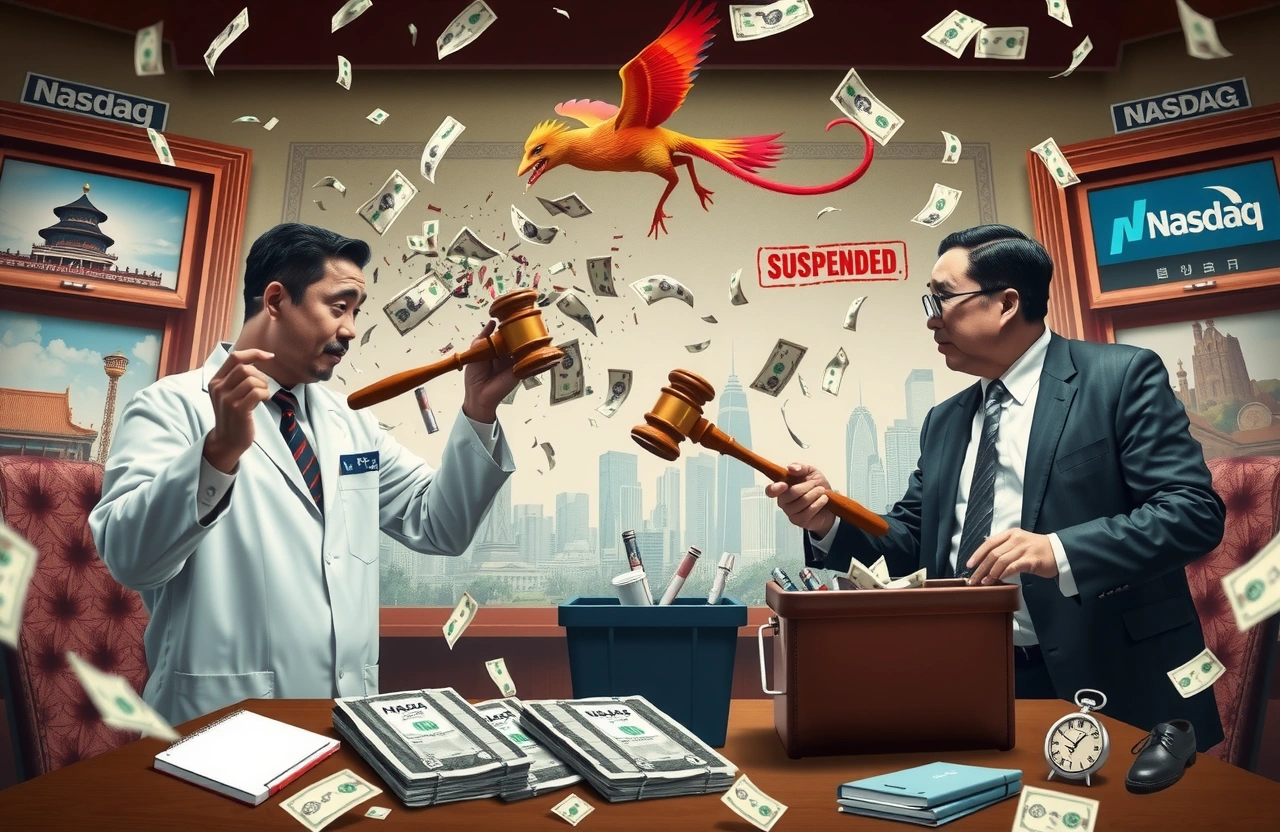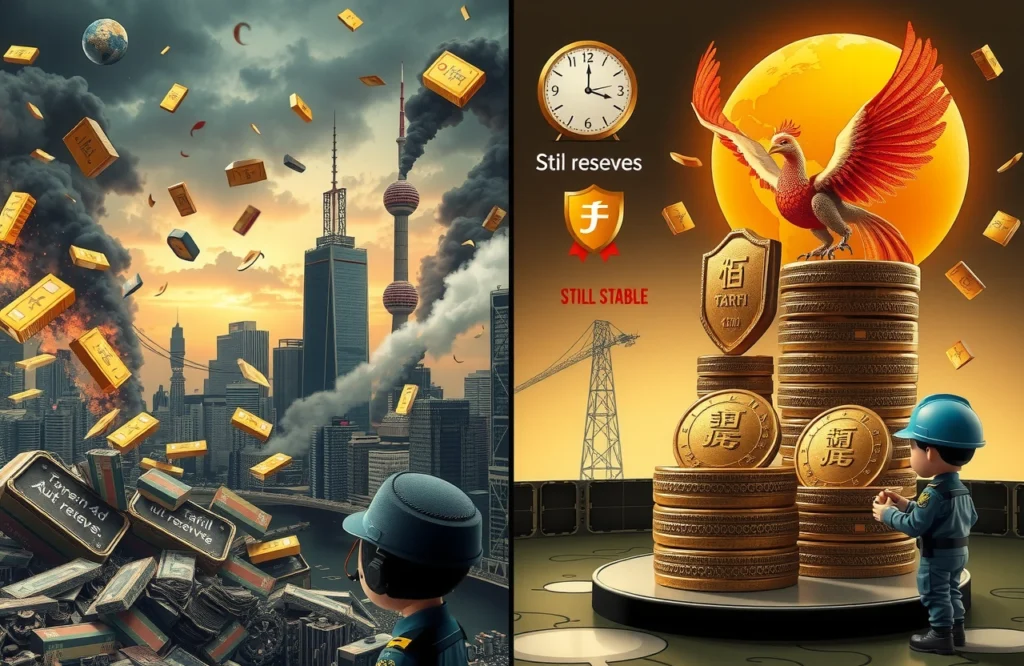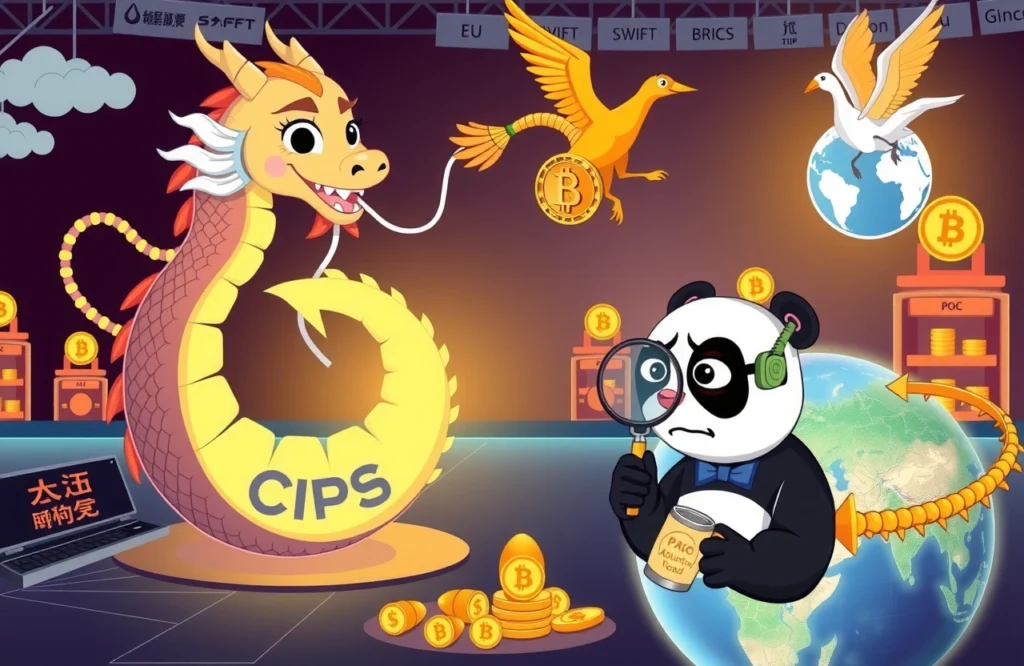When Vaccine Billions Collide With Boardroom Battles
Sinovac Biotech became a household name during COVID-19, distributing over 2.5 billion vaccine doses globally. What few realized was the bitter internal conflict brewing beneath its pandemic success. Founded in 2001 through a partnership between scientist Yin Weidong (尹卫东) and entrepreneur Pan Aihua (潘爱华), the company now faces corporate implosion after nine years of power struggles. This corporate governance disaster culminated in June 2024 with a staggering $53.4 billion dividend proposal—representing 22 times its market value—as warring factions scramble for cash before potential delistings. At the core of this Chinese vaccine saga lies a cautionary tale about unchecked shareholder ambition during unprecedented windfalls.
The Fractured Legacy of Sinovac’s Founding Partnership
The origins of Sinovac Biotech trace back to 2001, when academic-business alliances bridged China’s early biotech landscape. Yin Weidong (尹卫东), a virologist specializing in hepatitis vaccines, contributed patented technology. Meanwhile, Pan Aihua (潘爱华), a Peking University professor turned pharmaceutical entrepreneur through his company Sinobioway Group (formerly 未名医药), provided 76% startup capital versus Yin’s 24% equity stake.
The Uneasy Alliance
Despite regulatory approvals for their core hepatitis A vaccine and successful 2003 NASDAQ listing (SVA), structural tensions emerged:
– Governance Complexity: Pan maintained board control via Sinobioway while Yin oversaw R&D operations
– Consolidation Pressures: China’s vaccine market consolidation intensified corporate demands
– Emerging Technologies: Vaccine pipelines shifted toward flu vaccines requiring new capital expenditures
When US-listed Chinese firms entered privatization waves around 2016, these tensions exploded into open warfare.
The Poison Pill Escalation
After privatization discussions surfaced in 2016, both founders pursued competing acquisition bids instead of cooperating:
– Yin Weidong aligned with private equity firm SAIF Partners
– Pan Aihua partnered with Boston-based investment group 1Globe
In April 2018, when Pan attempted to replace Yin as CEO, Sinovac retaliated by deploying a shareholder rights plan—known as a “poison pill” strategy—issuing new shares exclusively to Yin’s partners. This diluted Pan’s stake from 28% to 17%, triggering irreversible hostilities.
Sabotage, Jail Sentences, and Regulatory Collapse
Pan Aihua’s retaliations turned increasingly drastic. By September 2018, court filings documented these escalations:
– Physical Takeovers: Pan-aligned staff seized company seals and locked Yin-aligned executives out of Beijing facilities
– Production Sabotage: Electrical cutoffs at vaccine plants caused 180,000 influenza doses worth $23 million to spoil
– Market Impacts: Resulting shortages disrupted Beijing CDC supply chains for months
Regulatory Unraveling
NASDAQ suspended trading in February 2019 citing “material non-compliance” after Pan’s faction blocked financial disclosures. Shares froze at $6.47—a disastrous turn timing-wise, as COVID-19 emerged just eleven months later. The vaccine power struggle now entered its highest-stakes phase.
Pandemic Windfall Amid Paralysis
Through subsidiary Sinovac Life Sciences (科兴中维), Sinovac became China’s dominant COVID-19 vaccine exporter. Financials revealed startling leaps:
– 2020 Revenue: $5.1 billion
– 2021 Revenue: $19.3 billion
– Profit Comparison: Pre-pandemic annual average: $40 million vs 2021’s $84.6 billion
With NASDAQ trading halted, shareholders watched peers soar—Novavax rose 8,600%—while unable to sell positions. This incentivized Pan’s legal assaults but ultimately brought corporate downfall.
The Courtroom Showdowns Accelerating Financial Resolutions
Following his boardroom defeat, Pan Aihua sought redemption through litigation exploiting Sinovac’s Cayman Islands incorporation. Simultaneously, Yin Weidong restructured operations excluding Pan.
The Imprisonment Catalyst
In January 2023, Pan faced prosecution from Sinovac-controlled entities for financial misconduct violations including:
– Undisclosed equity transfers
– Tax evasion schemes
– Document falsification
Beijing Third Intermediate Court sentenced him to thirteen years imprisonment—removing him from the vaccine power struggle physically but not financially.
The Cayman Islands Victory
1Globe—Pan’s longtime investor partner—continued litigation arguing Yin manipulated the 2018 shareholder meeting violating Cayman corporate law. In February 2024, Cayman Grand Court Justice Parker ruled:
– The “poison pill” dilution constituted illegal oppression
– Yin’s acquisitions lacked shareholder approval
This opened possibilities for governance reversals and claims compensating Pan’s losses.
The Cash Dividend Endgame and Its Lingering Controversies
Victorious 1Globe investors installed a new board seeking corporate rehabilitation. Instead, paralysis deepened.
The newly appointed directors proposed canceling contested shares causing objections from minority shareholders. Major accounting firms like Ernst & Young withdrew audits fearing uncertainty. This stranded Sinovac without mandatory SEC filings—triggering NASDAQ’s final delisting notice dated May 15, 2024.
The Record Dividend Proposal
Facing permanent exchange removal, the board announced a distribution of $53.4 billion to shareholders on June 28, 2024—equivalent to $144-$190 per share versus $6 pre-halt values. Financial analysts flagged critical concerns:
– Funding Source: Draining Sinovac’s $11.7 billion cash reserves plus reissuing corporate bonds
– Sustainability: Zero allocation toward vaccine R&D pipelines
– Governance Conflicts: Prioritizing recent stakeholders over locked-in legacy shareholders
Bloomberg Health confirmed this represented history’s largest dividend-to-market-cap ratio.
The Hong Kong IPO Gambit
Post-dividend announcements revealed plans relisting via Hong Kong Stock Exchange—despite unresolved Cayman rulings requiring ownership redistribution. Hong Kong Exchange Regulation 8.08 requires three-year audited financials Sinovac can’t provide until legal resolutions finalize.
The vaccine power struggle enters uncharted territory with unfolding implications:
– Chinese regulators investigating funds transfers overseas
– Minority shareholders organizing global class-actions
– Vaccine procurement contracts frozen amid governance mistrust
Benchmarked against Moderna’s transparent windfall governance, Sinovac’s path underscores creditor risks overwhelming shareholder paydays.
Lessons From a Corporate Implosion Fueled By Pandemic Fortunes
Sinovac’s descent from vaccine trailblazer to governance failure offers distinct takeaways for stakeholders, regulators and markets:
– Partnership Precedence: Uneven founder contributions often sow long-term conflicts
– Windfall Planning Deficits: Few corporations structurally prepare for extreme liquidity spikes
– Regulatory Fragility: Complex cross-jurisdiction listings prevented oversight consistency
– Global Vaccine Impacts: Public trust erodes when profit-motives visibly override pandemic missions
Monitor Sinovac’s Hong Kong IPO submissions via the HKEX disclosure filings portal. Must-watch developments include Cayman Court compensation judgments and Beijing’s financial stability oversight responses. For biotechnology investors, scrutinize comparable China-US listed firms like BeiGene balancing tech ecosystems against governance instability risks.




